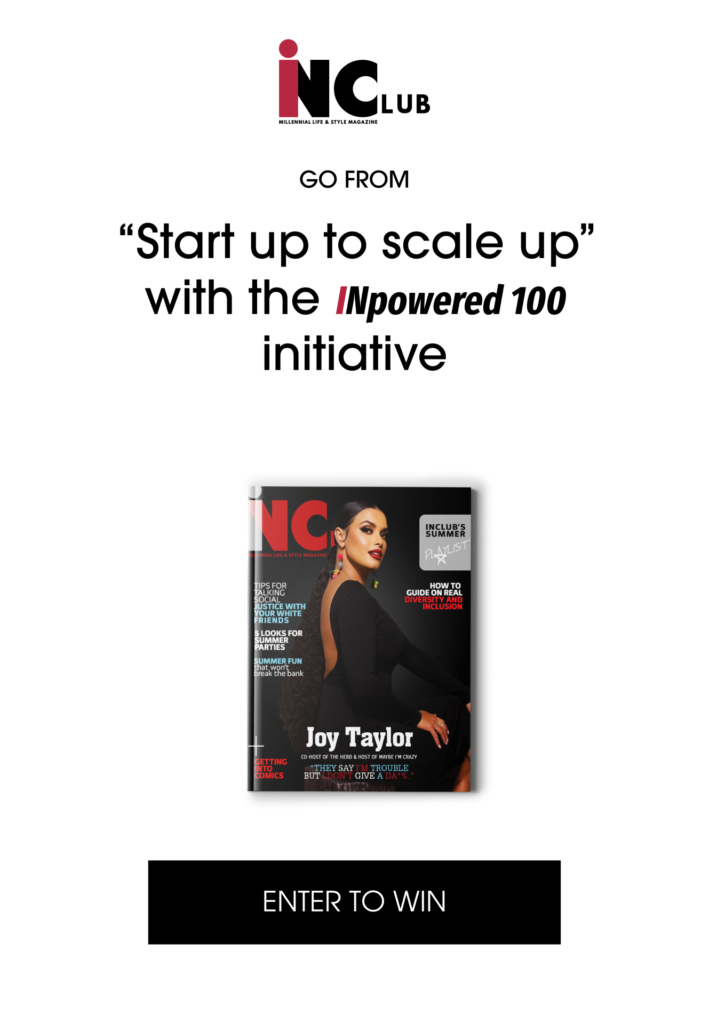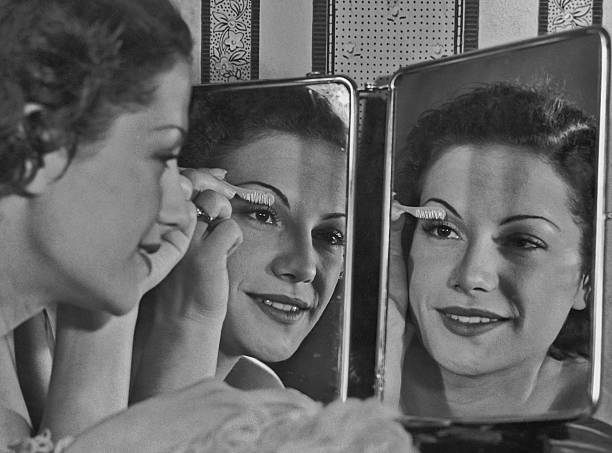Features, Hot Topics, Talks
Pretty Privilege: The lies that you were told. Part 1
Hello Inclub readers, welcome to the Pretty Privilege series. In this series, I am going to break down “pretty privilege” through my experiences and lens as a young black woman. This series is inspired by many female content creators on social media. I want to give a personal shoutout to Oh! Stephco for reviving this conversation and black female invisibility. I want to give a special shoutout to all the women, black and non-black women, who contributed to this discussion.
The “pretty privilege” conversation has many different layers—it is complex, intense, and indeed fragile. This series will cover the different stages of my life and how I have accepted and adapted to society’s definition of what it means to be pretty and desired.
Thank you for reading,
DeNaye Alston
I didn’t grow up with Pretty Privilege
I remember the first time I was called u-g-l-y. It was in 6th grade, by a ginger haired boy named Chad. I pretended not to be bothered by it, but this word, ugly, became my second name.
Chad called me ugly often, when no one was watching, whispering in my ear or saying it plainly with a twisted mouth and a touch of disgust. I didn’t know what to say to him back. If he said it then it must have been true I thought.
The first time I felt ugly was when my uncles and my family gushed at how beautiful my sister was while giving me second-hand compliments. My sister was the spitting image of my dad’s mother, tall and slender. Voluminous hair framed her high forehead sweeping passed her shoulders like a young Diana Ross.
I, the total opposite, was stocky. My hair was fine and kinky. It shriveled up to my ear lobes making it impossible to fit my hair in a ponytail. The women in my family tried everything to get my hair thick and straight.
At night when my mother would plait my hair. I would often ask her, “Do you think I’m pretty?”
Such a loaded question for a girl child.
Believe it or not, children know the messages they are being sent. Young black children know from an early age that a certain skin tone is favored. For a child to think they are ugly or even pretty isn’t so far fetched.
As a girl child, I knew what “pretty” meant. I knew that princesses, pink, and makeup were pretty things. “Pretty” children were white girls with blue eyes and blonde hair or black girls with long straight hair and a small nose. My self-awareness as a young girl was nothing short but extraordinary.
How not having pretty privilege affected me early
By the age of twelve, I accepted the fact that I looked like my father or myself. I had natural hair before there was a “natural hair movement”. If only I had a relaxer some would say…. then I would look more presentable (pretty).
Many young girls got that same tired message. Straight hair was in. You needed it to get a good job, to keep a job, to get married and so and so forth. In church, I was deemed a “wild child”. Unlike my pretty cousins, I didn’t get picked to lead songs for the children’s choir. I also didn’t get picked to be a church delegate or representative for other churches unless I looked a certain way.
Being presentable meant better opportunities in both black spaces and white spaces. Since my hair was deemed a hot mess, I needed to hot comb my hair for every major church event I attended, including the Cotillion. Surprisingly, with fresh hot combed curls, I won.
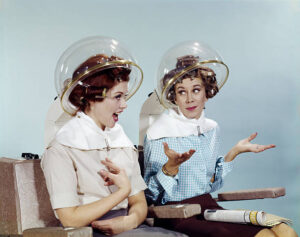
My hair troubles followed me everywhere. On photo day in grade school, I was never passed the little black comb to tidy up my hair. And forget about smiling! I had gaps in my teeth. For school plays and chorus, I always played a supporting plant or a singing-dancing animal. I felt like everything that I was born with was unfortunate, especially my hair.
As I grew, my hair began to grow out of control and a new name was assigned to me:
Spider Head
My hair was no longer manageable. It was out of control, matted and would not stay down. As spider head died down, mop head emerged, both white kids, black kids, white adults, and black adults participated in the hair slander.
My hair made people uncomfortable, and I did not know why. My focus on my hair was another layer of shame, another hit on my anxiety and self-esteem.
I think my mother knew I was suffering. She often read me stories about the ugly duckling becoming the beautiful swan and I dreamed of that day coming and it finally did:
Welcome to High School.
When my Pretty Privilege came my world changed
On the surface level, my experience in high school was amazing. I was pretty good at basketball, pretty good at track too. My hair was taken care of. I grew into my face, and I was no longer “awkward looking”. I wasn’t pretty enough to become prom queen or homecoming queen, but I was pretty enough to be popular.
In the span of 5 months, I went from being unfortunate looking to attractive. I had my first boyfriend, my first kiss, and my first dance and finally I got braces! The bullying stopped and my teenage years were like a movie.
It was surreal.
But I still felt ugly
I felt immense pressure in high school to be more pretty, to be thin, and to have a boyfriend. When a girl hits puberty her confidence takes a hit. We become aware of our bodies and how our bodies are received by others positively and negatively. It was like my body gave people the right to comment on it.
How media changes our perception of what we think is attractive
A number of things were happening during high school that changed how society viewed my attractive level. I went to a diverse high school. There were mixed race teens at my high school (I never had seen that before) and I got lumped with them. I was an athlete, I was “slender” and I was “popular”.
But you know what else happened, black female representation in the media blew up.
The entertainment industry can change our perception on what we deem attractive
There was a period in the early 2000s where many black TV shows disappeared from black television. In the 90s and earlier decades, it seemed like black culture and thought stayed in black spaces. Black entertainment became global and wasn’t just limited to black culture. Black culture became cool.
Lighter skinned black women were hitting the global market in TV and popular music: Rihanna, Beyonce, Keri Hilson, Raven Simone, and Kerry Washington to name a few were pushed to the forefront and more light-skinned black ambiguous women followed.
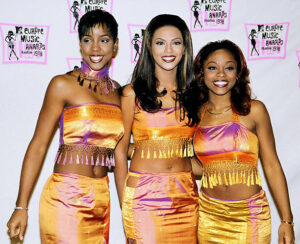
I finally saw people that looked like me on TV, but this representation excluded darker skinned black women and ambiguous black women. My confidence only sky-rocketed because black culture infiltrated popular culture. My aesthetic became normal.
For an ambiguous black woman to be popular she had to be exceptionally beautiful with a “crazy body” (i.e.. small waist and big butt) she could not just be average and at the time from long ago to 2013, she could not be too dark.
Media can’t fix how you feel about your self image.
Although I was finally considered attractive, the ugly-little-girl followed me. I felt like at any moment someone was going to call me ugly, constantly on guard waiting for the moment to happen, I dreaded dating. I became extremely insecure and started to suppress everything about me that I thought was still ugly.
In high school, I silently suffered from mental health issues, a mild eating disorder, and fear of failure and success. It wasn’t till after college that I began unpacking those issues.
As superficial as pretty privilege is, the effects of it run extremely deep especially for young women who will never experience that type of privilege. For women who have been on both sides of pretty privilege like me , it can be damaging. You start to believe in the lies: you aren’t pretty enough, you aren’t good enough, and my favorite, you aren’t worthy.
You begin to think something is wrong with you and you have to do everything to fix it or you begin to think people who compliment you are being malicious.
We have been conditioned to believe in pretty
Pretty privilege is when a person who is pretty has more advantages and benefits in society if they are seen as attractive.
Somewhere along the line we have been badly conditioned to believe in pretty. “Pretty” is based on perception so is beauty. I think we can all agree that beauty is more forgiving. What we think is “pretty” has been woven strategically into society. Pretty privilege comes from Patriarchy–the male gaze. What men say goes.
In the West, attractiveness is closely related to how someone can assimilate to how whiteness is perceived. We have been conditioned to believe certain features are more attractive than others through social and media influences.
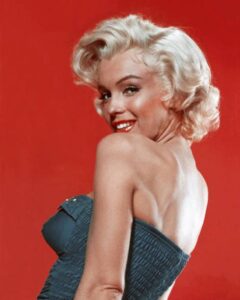
Film, movies, magazines, newspapers, and TV have pushed the standard of what it means for a woman to be pretty. For one thing she must be white or damn near close to it. Even across the globe, European beauty standards are coveted. And the funny thing is that not many women can achieve “pretty” naturally.
Pretty privilege is not exclusive to one ethnic group. Women of all races, sizes, and shapes can have “pretty privilege” depending on their location and how that ecosystem perceives physical beauty.
Remember it is the pretty standard (aesthetic) not a group of people or one person, it is a look that pretty privilege is based on. “Pretty privilege” is not exclusive to being a white woman, but it sure helps.
The colorism effect: Not every light skinned, unambiguous, or biracial woman has pretty privilege.
What is tricky about pretty privilege is that it overlaps with other prejudices, biases, and privileges. As a black woman, we can’t talk about the privileges of being pretty without talking about colorism, featurism, and texturism.
Colorism tends to dominate the pretty privilege conversation because being “pretty” in the black community is heavily associated with skin color and European (small) features. In the black community all over the diaspora lighter skinned women are seen as more desired (bleaching cream is very popular in highly melanated countries). For a girl to have dark skin was a negative attribute. This was shown in the critically acclaimed documentary Dark Girls.
It cannot be any type of light skinned women either. She must have a certain aesthetic or look, like I mentioned early. Light or brown eyes, with small features, and a loose curly or straight hair texture must be present. She must be unambiguous to be considered pretty, so they say.
Colorism and pretty privilege often intersect causing the pretty privilege conversation to be more complex and muffled. We hear in black music (entertainment and sports) that lighter skinned women and even white women are preferred over ambiguous black women. Often the men who prefer white and unambiguous women are ambiguous black men.
Just imagine being a WOC or a black woman and people in your community put you second to someone outside the community.
A little bit on Featurism and Texturism
Darker skin women can and do have pretty privilege. Think of Jodie Turner Smith and Adut Akech Bior, they are gorgeous women regardless of color. They both have different features (doll-like), but they are both tall and slender, with symmetrical faces.
In the black community, their features (body shape) and skin color may not be desired in the black community but in other communities they are prized for their distinctive incomparable beauty and runway model shape.
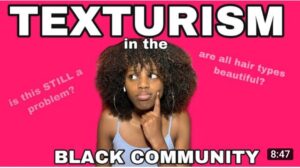
It is important to note that just because there are darker skinned women deemed desirable doesn’t mean that colorism doesn’t exist. Dark skinned women can have “smaller” features, lighter skinned women can have more ethnic features. The fact that all these types of isms determine your level of attractiveness says a lot in the pretty privilege conversation for black women.
Reaching and maintaining pretty privilege through makeup, clothes, and hair styles can be impossible if the desired look is completely opposite of what you are born with. Not having pretty privilege can be brutal.
Do you see how the pretty privilege conversation is so complex and we haven’t even scratched the surface?
The Pretty privilege lie
When I look back at pictures of me as a child, I see the same face that I see today. Nothing has changed. Which leads me to believe that pretty privilege is deceptively superficial. It runs deeper than what we think. The privilege depends on where you are and the privilege can evolve.
Pretty privilege isn’t just about whether someone gives you free coffee or free stuff (which is nice btw). Or whether a man shows you interest. Pretty privilege on both sides of the coin has serious ramifications that we truly don’t talk about or want to understand. Our minds have been programmed to accept this patriarchal programming from childhood. And when the next look comes out another wave of people will be deemed pretty attractive.
Since what is viewed as pretty is constantly changing and evolving when will we reject the concept of pretty? When are we going to stop believing these superficial lies and start believing in ourselves? We have the power as women and as a society to change our reality. The best thing that ever happened to me was letting go of people, beliefs, and ideas that thought I wasn’t good enough.
What society says isn’t what I say and what society believes is not what I believe.
Photo Cred: Getty images

